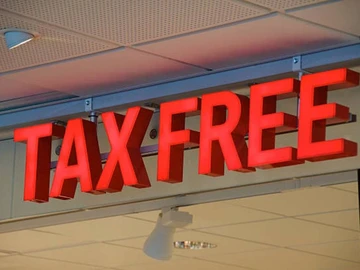For landlords in Zimbabwe, securing reliable tenants is just the first step in ensuring rental income stability. Retaining tenants for the long term reduces vacancy rates, minimizes turnover costs, and fosters a positive rental experience. Successful landlords prioritize tenant satisfaction by implementing effective strategies that encourage long-term stays.
Landlords must adopt a proactive approach to tenant retention. By focusing on communication, property maintenance, fair pricing, and tenant engagement, landlords can create an environment where tenants feel valued and are less likely to move.
1. Establish Clear and Open Communication
One of the key strategies for retaining tenants is fostering transparent communication.
- Set clear expectations from the start: Ensure tenants understand the lease terms, payment policies, and maintenance procedures.
- Be responsive to inquiries: Promptly address tenant concerns and provide timely updates on any issues.
- Encourage feedback: Create an open channel where tenants can voice concerns and make suggestions.
When tenants feel heard and respected, they are more likely to stay longer and maintain a positive relationship with their landlord.
2. Prioritize Property Maintenance and Repairs
Well-maintained rental properties in Zimbabwe attract and retain tenants. Landlords should:
- Respond swiftly to maintenance requests: Timely repairs enhance the tenant’s quality of life and demonstrate the landlord’s commitment to their well-being.
- Conduct routine inspections: Identify potential issues before they escalate into costly repairs.
- Upgrade property features: Consider modernizing the space with energy-efficient lighting, updated plumbing, or security enhancements to increase tenant satisfaction.
A well-kept property reassures tenants that their comfort and safety are a priority.
3. Offer Competitive and Fair Rental Pricing
Setting the right rental price is crucial for retaining tenants in Zimbabwe’s competitive property market. While landlords should aim for profitable returns, overpricing can push tenants to seek alternatives. To strike a balance:
- Regularly assess market rates: Stay updated on rental trends in Zimbabwe to ensure pricing remains fair.
- Provide good value for money: Offer amenities such as parking, security, or internet access to enhance the property’s appeal.
- Be flexible with lease agreements: Consider incentives such as small rent discounts for long-term tenants or allowing staggered payment options to ease financial pressure.
4. Enhance Tenant Experience with Additional Amenities
Creating an inviting living environment helps encourage tenants to renew their leases. Landlords can:
- Improve common spaces: If managing a block of flats or a townhouse complex, add outdoor seating areas, gardens, or play zones for families.
- Upgrade essential services: Install solar backup systems, boreholes, or water storage solutions to address Zimbabwe’s common power and water supply issues.
- Foster a sense of community: Organize occasional meetups for tenants or create a digital group where residents can communicate and share updates.
A comfortable and convenient living space can set a property apart in the rental market.
5. Respect Tenant Privacy and Rights
Respecting tenant privacy is fundamental to a good landlord-tenant relationship. Zimbabwean rental laws protect tenants from unnecessary disturbances. Landlords should:
- Give adequate notice before inspections: Tenants should feel secure in their homes without unexpected intrusions.
- Ensure legal compliance: Follow the legal procedures regarding rent increases, lease terminations, and eviction processes.
- Avoid discriminatory practices: All tenants should be treated fairly, regardless of their background or circumstances.
6. Implement Responsible Rent Increases
If a rent increase is necessary, it should be gradual and justified. Landlords can:
- Communicate increases in advance: Notify tenants well before lease renewal periods.
- Highlight added benefits: Justify rent adjustments by demonstrating property improvements or enhanced services.
- Offer renewal incentives: Lock in long-term tenants by providing discounts on early lease renewals.
When tenants see value in their rental property, they are more likely to accept reasonable increases.
7. Understand Rental Dispute Resolutions in Zimbabwe
Disputes between landlords and tenants are inevitable, but handling them effectively can prevent tenant loss. The Rental Housing Tribunal, addresses common rental issues such as:
- Non-payment of rent
- Failure to refund security deposits
- Unlawful eviction or lockouts
- Lack of property maintenance
- Disputes over municipal service payments
By resolving disputes amicably and following legal procedures, landlords can maintain positive relationships with tenants.
Final Thoughts
Retaining tenants for the long term requires a proactive approach to property management, fair pricing, and tenant engagement. By prioritizing maintenance, enhancing amenities, respecting privacy, and fostering a strong landlord-tenant relationship, property owners in Zimbabwe can minimize vacancies and build a sustainable rental business.
As Zimbabwe’s real estate market evolves, landlords who prioritize tenant satisfaction will enjoy long-term rental stability and profitability.
 Continue with Facebook
Continue with Facebook
 Continue with Email
Continue with Email














